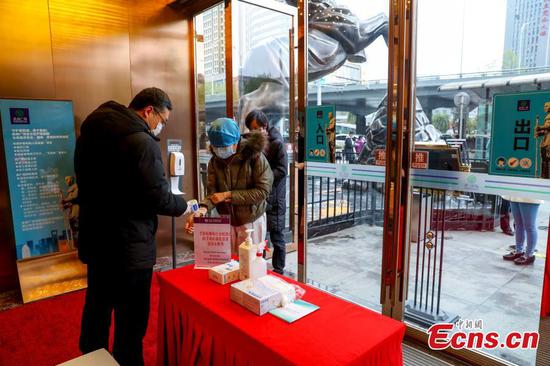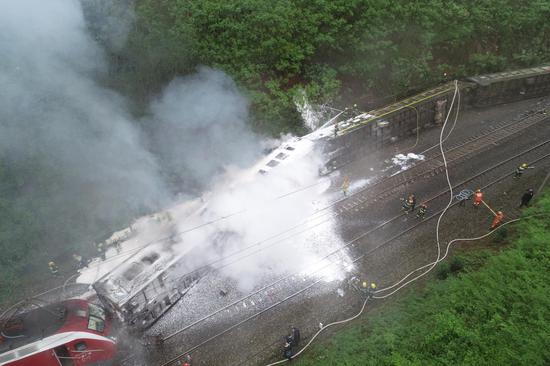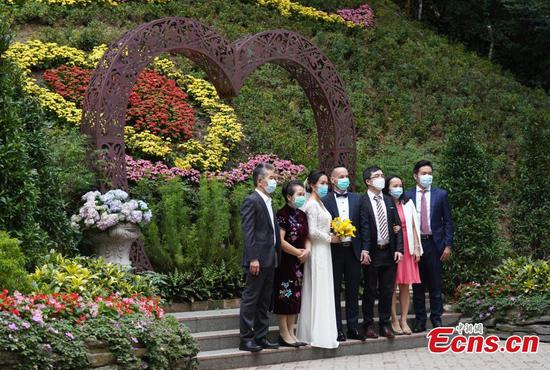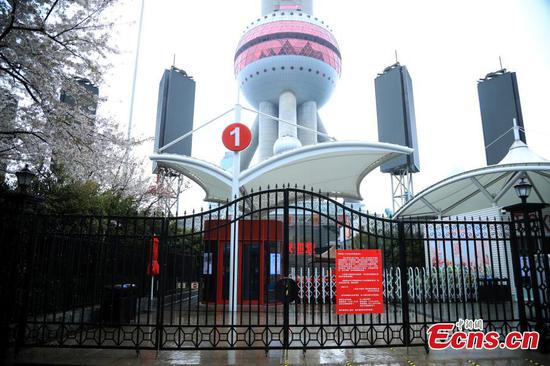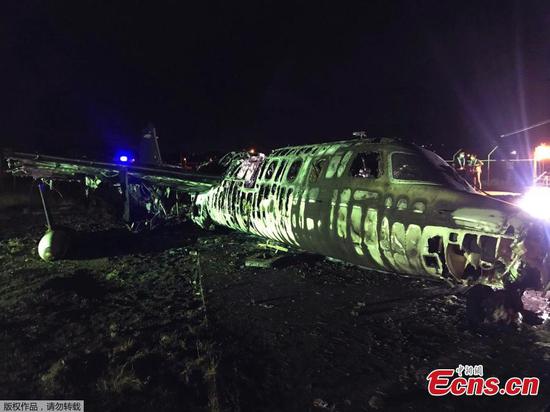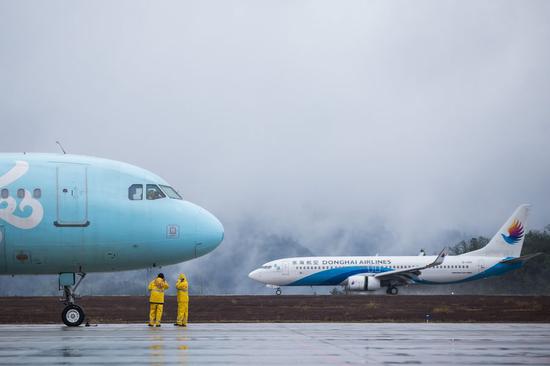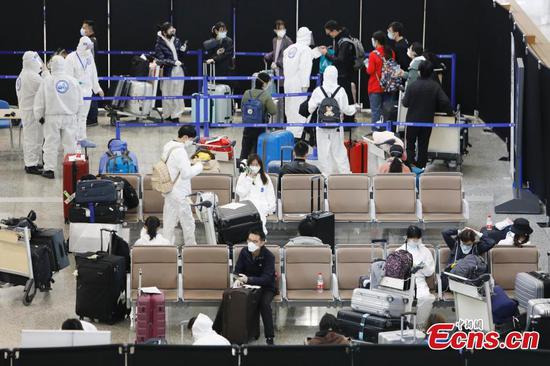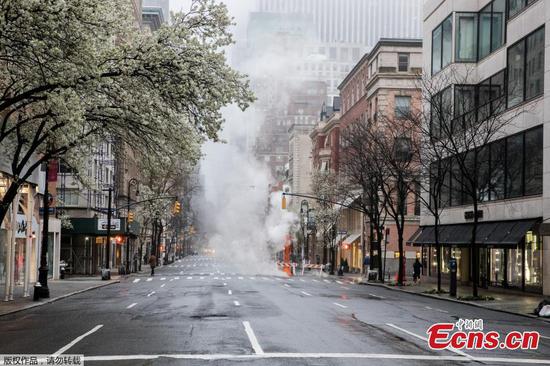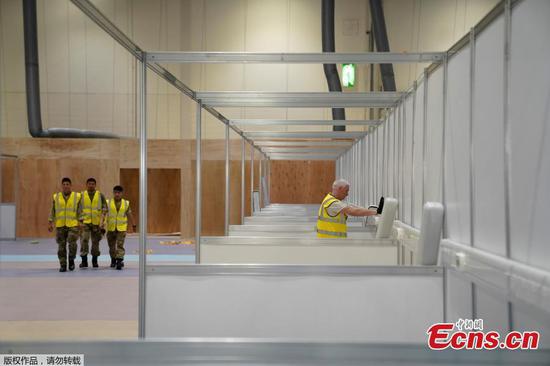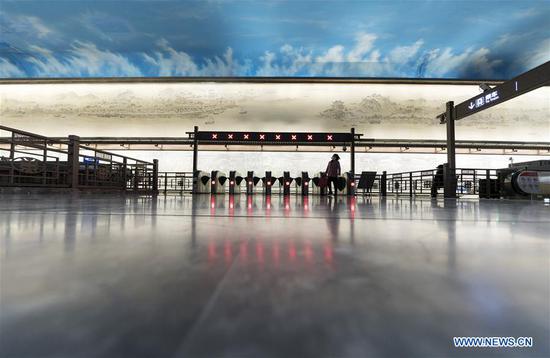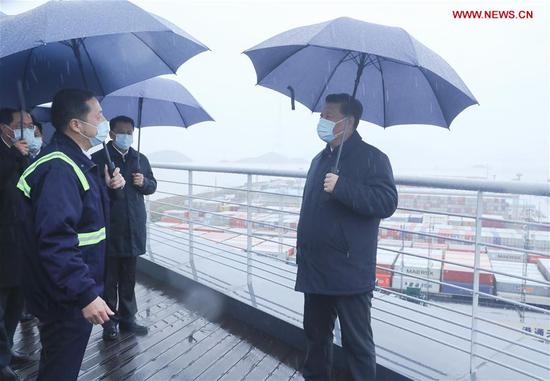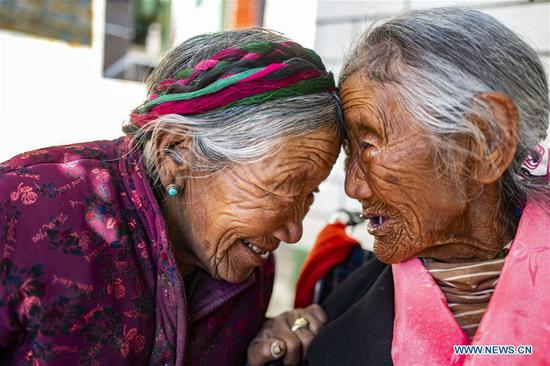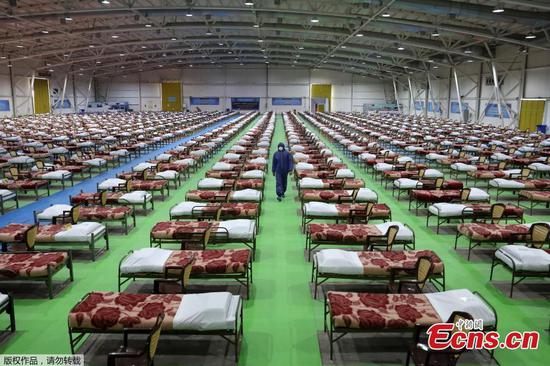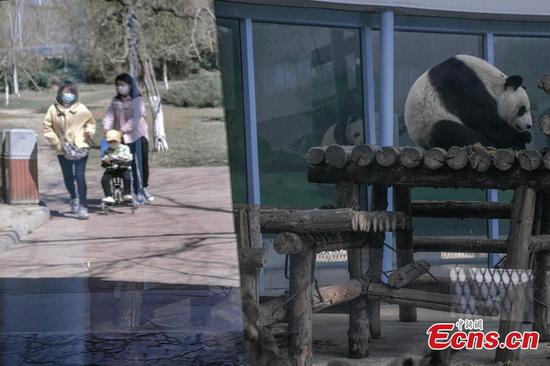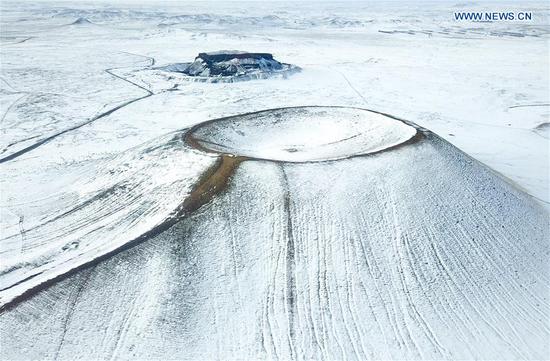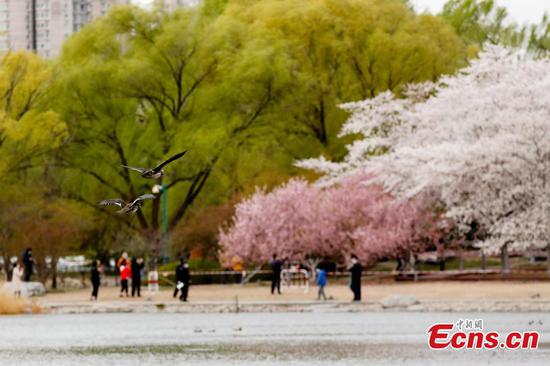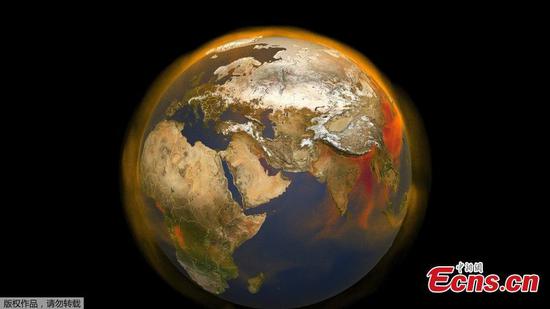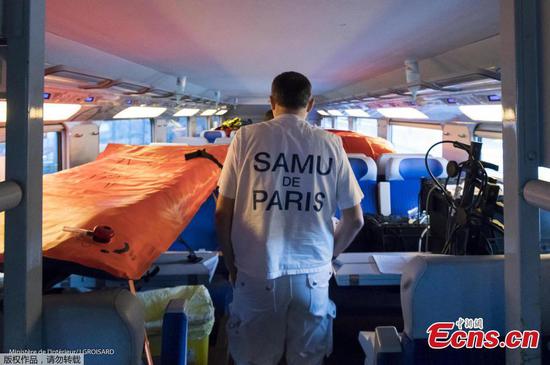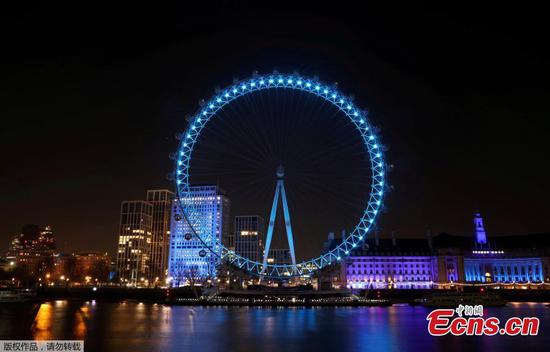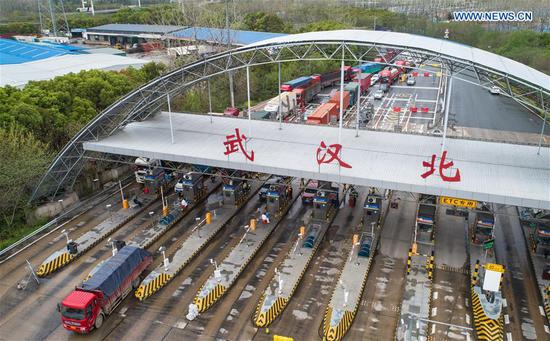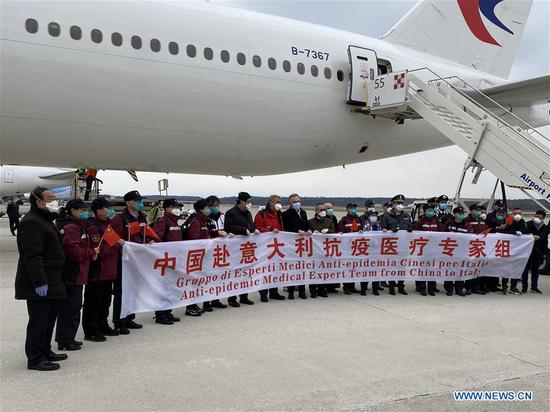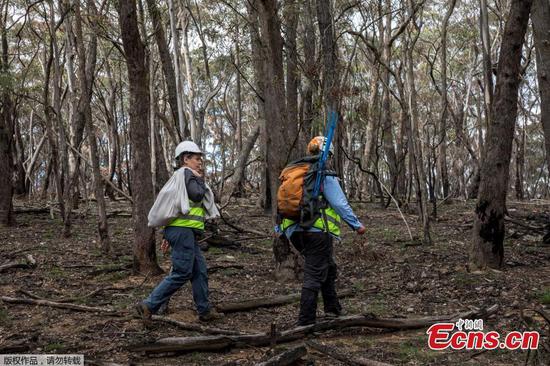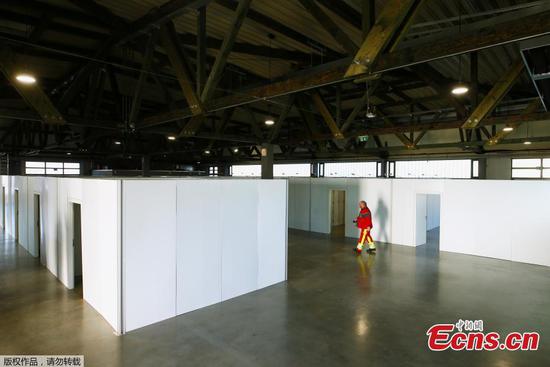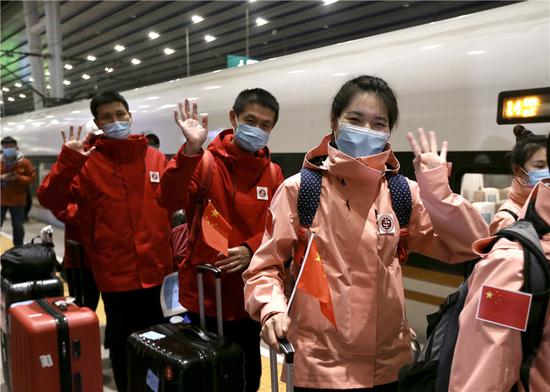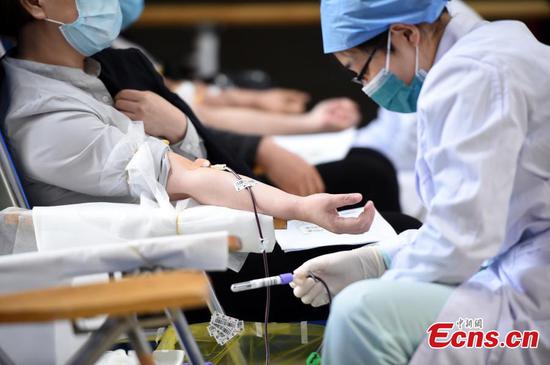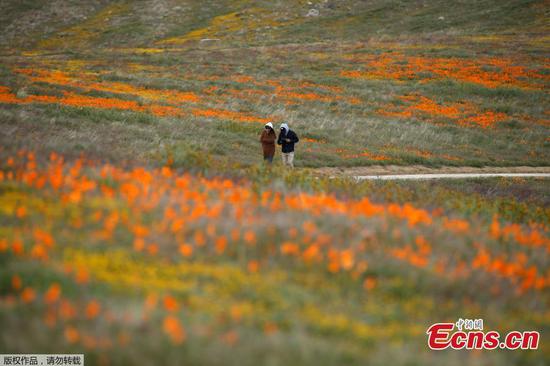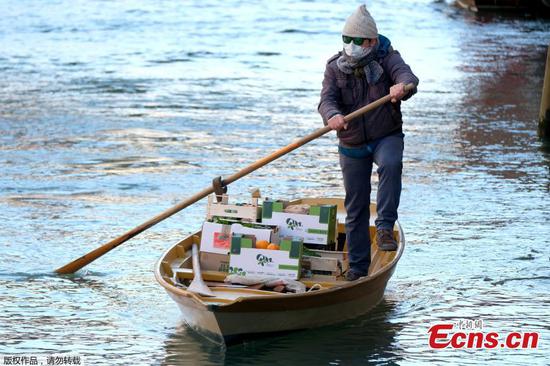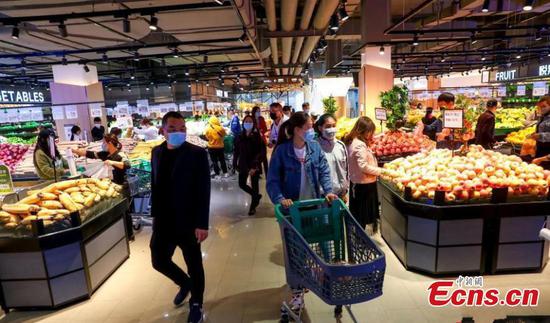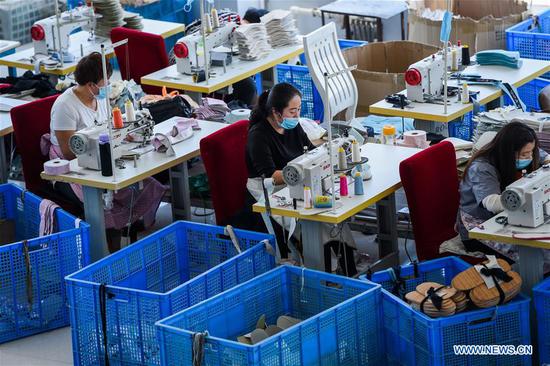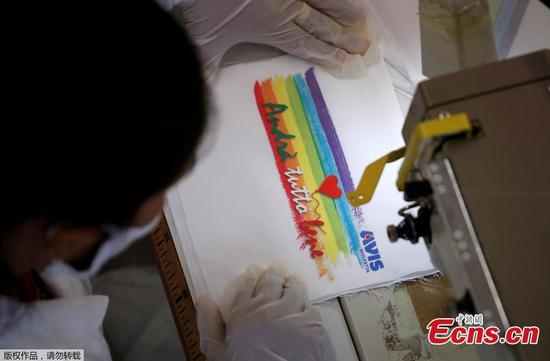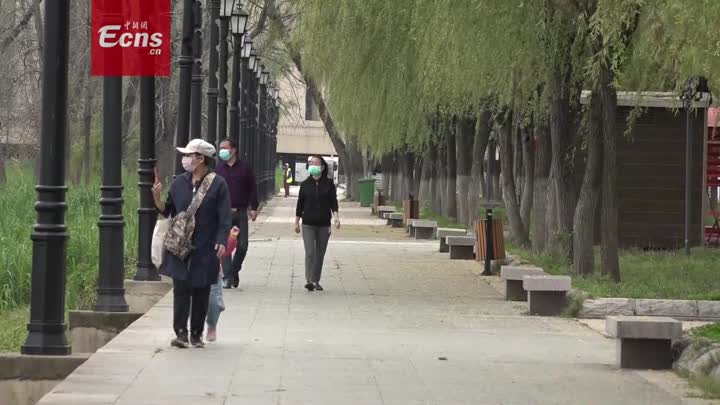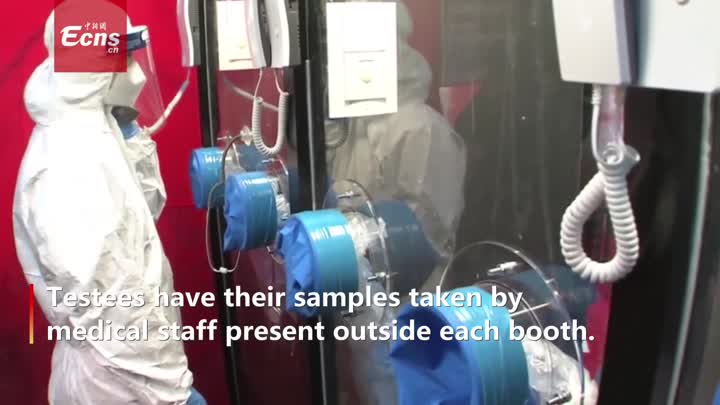
Customs staff lead inbound passengers into Terminal 3 at Beijing International Airport on March 21, 2020. (Photo/Xinhua)
Beijing has tightened disease prevention and control measures for outbound travel, requiring all residents to suspend unnecessary plans as the novel coronavirus pneumonia pandemic worsens overseas.
Since Friday, all Beijing residents have had to suspend prearranged trips that were not absolutely necessary, the capital's leading anti-virus group said. The city has also bolstered management of outbound travel plans by discouraging non-essential trips.
The move comes after the capital upgraded the high-risk list of hard-hit areas to 25 countries and regions on Wednesday to help contain the risk of imported cases.
Earlier this month, Beijing had listed South Korea, Japan, Italy and Iran as hard-hit countries as novel coronavirus pneumonia cases surged in those countries.
By noon Sunday, the capital had reported 161 imported novel coronavirus cases, with 16 cured and discharged from hospital, the city's Health Commission said.
European and North American countries accounted for most of the infections from overseas, Pang Xinghuo, deputy director of the Beijing Center for Disease Control and Prevention said earlier.
On Wednesday, Beijing began requiring all travelers from overseas arriving in the capital to undergo centralized quarantine and receive nucleic acid tests.
The leading anti-virus group stressed on Friday night that as cross-border infections of the novel coronavirus have raged recently, it's essential that all inbound travelers undergo centralized quarantine, regular checks and medical observation.
Quarantine sites for inbound travelers must be chosen meticulously, and professionals should evaluate whether the sites are qualified for medical observation purposes.
Medical waste generated from such sites has to be disposed of appropriately through a streamlined process that must be checked regularly, it said.
Since Wednesday afternoon, the capital has started to bring back people stranded in Hubei after the province lifted traffic controls in all areas except for its capital, Wuhan.
By Sunday, around 10,000 people who were stranded in Hubei had been brought back to Beijing by high-speed trains, Mao Jun, spokesman for the Beijing Major Transport Stations Management Committee, said on Sunday.
Mao also specified the scope of the people stranded in the province who need to return to the capital, including residents with Beijing hukou (household registration) or residence permits as well as those who had lived and worked in Beijing before the novel coronavirus pneumonia outbreak began.
People can also choose to drive back to Beijing, Mao said. Those returning from Hubei are also required to undergo a 14-day quarantine either at home or in centralized sites in Beijing.









